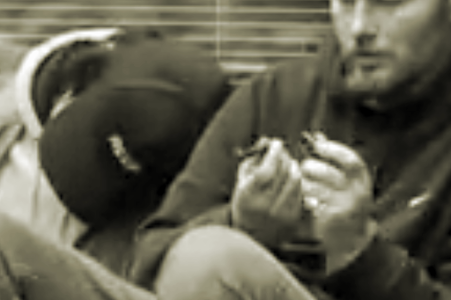Measure 110 is working – honest!
It's hard to believe that nearly three years after it was passed, Measure 110, essentially legalizing hard street drugs in Oregon, still has its defenders. It has been an unmitigated disaster, and since the bobbleheads in the state legislature are unwilling to do anything serious to straighten things out, the only sane idea is for the public to repeal it and start over.
But no. It still has some fans out there, and although they're a clear minority at this point, they get more than their share of attention. The media play right along, as if there's no right or wrong.
"It's starting to work." "Give it a chance." Give me a break.
We had two examples of the nattering last week. They're opening a 16-bed detox facility out "off" Foster Road somewhere, and everybody's quick to point out that it’s being "funded by Measure 110." Sixteen beds, by appointment only, in a city that's seemingly attracting that many additional addicts a week, from all over the country. Excuse me if I hold the champagne.
“Sixteen beds?! I'm laughing at 16 beds," Zach said incredulously. "Look down the street right here, look down that street right there, I bet you half of them are hooked on opioids right now. If half of us went in there, that's 30 people right there. What are 16 beds going to do? That waitlist's going to be years long."
Meanwhile, the county's hopeless district attorney, Mike Schmidt, is crowing about his support for Measure 110 as part of his campaign to be re-elected next November.
Some of the foot soldiers in the war – legislators, advocates and others – gathered with Kotek on Tuesday for a ceremonial signing of six bills. At the core of the bills is a goal to save lives. The legislation will make opioid overdose reversal medication more available, expand fentanyl drug education in public schools and start a 40-cent phone line tax for the 988 state hotline and mobile crisis response teams that help people in crises....
Multnomah County District Attorney Mike Schmidt was among those present. In an interview with the Capital Chronicle, he said he supported House Bill 2395, which expands access to naloxone, which reverses opioid overdoses, making it more available to first responders, schools and others. He said he testified before lawmakers about the bill after he met with a resident who lost her son to fentanyl.
“We need to do life-saving measures,” he said. “Start there, keep people alive, so that they can go to treatment. If they’re not alive, the treatment is not going to help.”
Schmidt, who supported Measure 110, said the benefits are starting to emerge, like a new treatment center in Multnomah County: Quest Center for Integrative Health. Measure 110 funding helped the center centralize its services and increase its capacity to take 500 new clients.
As failed experiments go, it's hard to say which is worse: Mike Schmidt as D.A., or Measure 110. Man, are they both for the birds.
More Narcan and more taxes. Great.

Haven’t met anyone who thought it was a good idea. I think that condoning it is a moral offense and boarder line criminal. Haven’t heard of a good outcome.
ReplyDeleteM110 divorced freedom from responsibility. Hard drugs weren't outlawed to prevent people from having fun, they were outlawed so that responsible people wouldn't have to pay for all the collateral damage created by irresponsible drug addicts. If we are going to allow people to use hard addictive drugs, we have to be willing to make them pay for the damage they inflict on others.
DeletePart of making it a crime is to deter people from doing it, and to push addicts toward treatment. Anyone who thinks that there's no role for the criminal justice system to play in combating homelessness and addiction is delusional.
DeleteI’m at a loss. So, I’m all ears.
DeleteI am sympathetic to the argument that the government has no business deterring people from using drugs if they can use them responsibly (or at least without creating unreasonable burdens on others).
DeleteBlanket prohibition for deterrence purposes requires punishing some good people on the theory that they may become bad (someday) unless they are deterred now. It's an infringement of personal freedom in the interests of government efficiency (i.e., if we let you use these drugs, there is a substantial chance you will become a serious burden to society later).
Prohibition generally seems wrong, but the policies undergirding 110 seem "wronger".
Going thorough drug rehab is hard. Many or most people won't voluntarily go through the pain, mental strain and growth needed to get through addiction to recovery. Human nature is to take the easier, less painful path. That is why Jack is right. Measure 110 needs to be re-written to say that all these services must be available to, and paid for to support those who enter and stay in rehab. And prosecution must be reinstated to (1) encourage and motivate people to go and stay in rehab, and (2) protect others from the theft, robbery and violence that happens when people need to get their drugs.
ReplyDeleteIt isn't for punishment. The rates of drug recovery are abysmally low with no prosecution. But addicts need motivation to help them get to recovery. And sometimes help doesn't take an easy path.